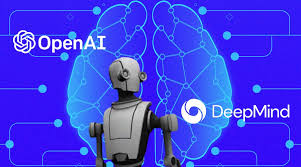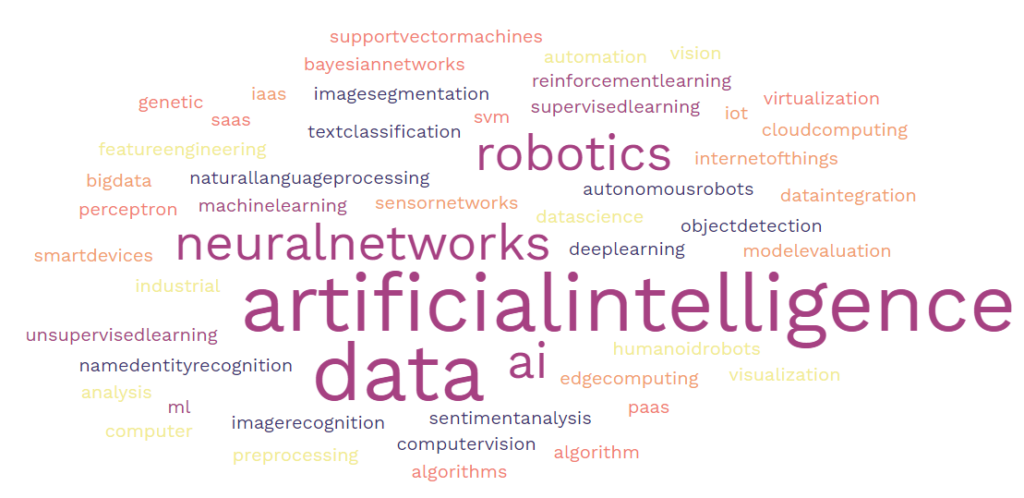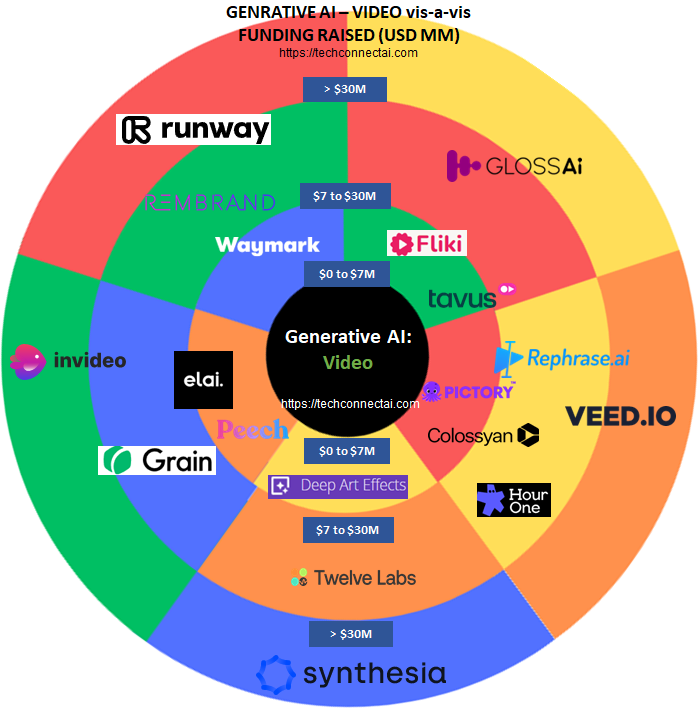Table of Contents
ToggleIntroduction
In recent years, the field of generative artificial intelligence (AI) has witnessed remarkable advancements, revolutionizing various industries and unlocking new possibilities. These innovative technologies, capable of generating content autonomously, have gained immense popularity due to their potential to reshape our world. In this blog, we will explore ten cutting-edge generative AI companies that are at the forefront of this transformative technology, pushing boundaries, and shaping the future across diverse domains.
OpenAI, founded by Elon Musk and Sam Altman, is a trailblazing research lab dedicated to advancing artificial general intelligence and is a leading generative AI companies. They have made significant contributions to generative AI with models like GPT-3, which is renowned for its ability to generate human-like text across a wide range of tasks. OpenAI’s models have been adopted by various industries, from content creation to customer service automation, enabling businesses to enhance productivity and efficiency through intelligent automation.
NVIDIA, a global leader in visual computing and is a leading generative AI companies. It has been at the forefront as generative AI companies with their development of powerful graphics processing units (GPUs) that excel at training and running complex AI models. NVIDIA’s cutting-edge hardware, such as the NVIDIA A100 Tensor Core GPU, has revolutionized the field of deep learning and has been instrumental in training generative models like StyleGAN, which can generate highly realistic images. Their hardware innovations have accelerated the progress of generative AI and are driving advancements in computer graphics, healthcare, and autonomous vehicles.

DeepMind, an AI research lab acquired by Google is a leader in Generative AI and has achieved significant breakthroughs in generative AI by combining deep learning with reinforcement learning. They are known for developing AlphaGo, the AI program that defeated a world champion Go player, and subsequent models like AlphaZero and AlphaFold. DeepMind’s research in generative models has led to advancements in natural language processing, protein folding prediction, and drug discovery, offering immense potential for scientific and medical advancements. Their work continues to shape the future of AI and its applications in various domains.
IBM Watson, an AI platform developed by IBM, has been a pioneer in applying generative AI to solve complex business challenges. Watson leverages natural language processing and machine learning techniques to generate insights from vast amounts of structured and unstructured data, aiding industries such as healthcare, finance, and customer service. Watson’s capabilities have expanded to include conversational AI, enabling businesses to provide personalized and engaging customer experiences through virtual assistants. IBM Watson continues to push the boundaries of generative AI and is driving innovation across multiple sectors.
OpenAI Gym is an open-source toolkit that provides a platform for developing and comparing reinforcement learning algorithms. It has been instrumental in advancing generative AI by offering a standardized environment for training and evaluating AI models. OpenAI Gym provides a diverse collection of environments, from classic control problems to complex simulated worlds, enabling researchers and developers to test and refine their generative models. By fostering collaboration and benchmarking, OpenAI Gym has accelerated the development of reinforcement learning techniques and paved the way for future advancements in autonomous systems and robotics.
Salesforce, a leading customer relationship management (CRM) platform, has embraced generative AI to enhance its services and is a leading generative AI companies. Their AI-powered platform, Einstein, leverages natural language processing and machine learning to generate insights from customer data, enabling businesses to make data-driven decisions and personalize customer interactions. Einstein’s generative capabilities extend to predictive analytics, forecasting, and recommendation systems, providing valuable guidance to sales and marketing teams. By harnessing generative AI, Salesforce is empowering businesses with the tools to optimize their operations and deliver exceptional customer experiences.
Adobe, a renowned name in creative software, has integrated generative AI into their suite of design tools and is a leading generative AI companies. Adobe Sensei, their AI and machine learning framework, utilizes generative models to automate repetitive tasks, such as image editing, content generation, and design optimization. Sensei’s generative capabilities extend to video editing and audio manipulation, offering creative professionals powerful tools to streamline their workflows and explore new artistic possibilities. Adobe’s integration of generative AI has revolutionized the creative industry, empowering designers to push boundaries and innovate in ways previously unimaginable.
OpenAI Robotics
OpenAI Robotics, a division of OpenAI, is focused on developing advanced robotic systems powered by generative AI. Their research and development efforts aim to create robots capable of performing complex tasks autonomously and adapting to dynamic environments. OpenAI Robotics leverages techniques such as reinforcement learning and simulation to train robots to learn and improve their skills through trial and error. By combining generative AI with robotics, OpenAI Robotics is shaping the future of automation, manufacturing, and transportation, paving the way for intelligent and versatile robotic systems.
NVIDIA Omniverse is a revolutionary platform that combines generative AI, computer graphics, and simulation to create immersive and collaborative virtual worlds. Omniverse allows artists, designers, and engineers to create and explore photorealistic environments in real-time. By leveraging generative AI, Omniverse enables the automatic generation of realistic 3D models, textures, and animations, reducing manual labor and boosting productivity. With its advanced physics simulation capabilities, Omniverse is not only transforming industries such as architecture, entertainment, and gaming but also serving as a powerful tool for training AI models in virtual environments.
OpenAI Robotics Simulator
OpenAI Robotics Simulator is an open-source platform designed to facilitate the development and testing of robotic systems. It provides a simulated environment where developers can train and evaluate their AI models and algorithms before deploying them on physical robots. The simulator’s integration with generative AI allows for the creation of complex and realistic virtual environments, enabling researchers to tackle challenging tasks and refine their models. By providing a scalable and accessible platform, OpenAI Robotics Simulator is democratizing robotics research and driving advancements in autonomous systems and human-robot interaction.
FAQs (Frequently Asked Questions) on Generative AI Companies
Q1: How does generative AI work?
A1: Generative AI works by training models on vast amounts of data to recognize patterns and generate new content based on those patterns. These models can generate images, text, music, and more.
Q2: Are generative AI companies replacing human creativity?
A2: No, generative AI companies are not replacing human creativity. Instead, they are empowering artists, designers, and creators with new tools and possibilities, augmenting human creativity with AI-generated suggestions.
Q3: Can generative AI be used for malicious purposes?
A3: Like any technology, generative AI can be used for both positive and negative purposes. It’s essential to have ethical frameworks and regulations in place to ensure responsible use and prevent misuse.
Q4: Will generative AI eliminate jobs?
A4: Generative AI may automate certain tasks, but it also creates new opportunities and roles. As technology advances, it is crucial for individuals to acquire new skills and adapt to the changing job landscape.
Q5: What are the future prospects of generative AI?
A5: The future of generative AI is promising. It has the potential to revolutionize various industries, drive innovation, and unlock new possibilities. As the technology advances, we can expect even more exciting applications and advancements in the years to come.
Conclusion
Generative AI is transforming industries and shaping the future in remarkable ways. The ten cutting-edge companies discussed in this blog are at the forefront of this revolution, driving innovation across diverse domains. From OpenAI’s groundbreaking research to NVIDIA’s hardware advancements, and from DeepMind’s scientific breakthroughs to Salesforce’s customer-centric applications, each company is pushing the boundaries of what is possible with generative AI. As these companies continue to evolve and collaborate, they will unlock even more potential, leading us into a future where intelligent machines play an increasingly integral role in our lives.





